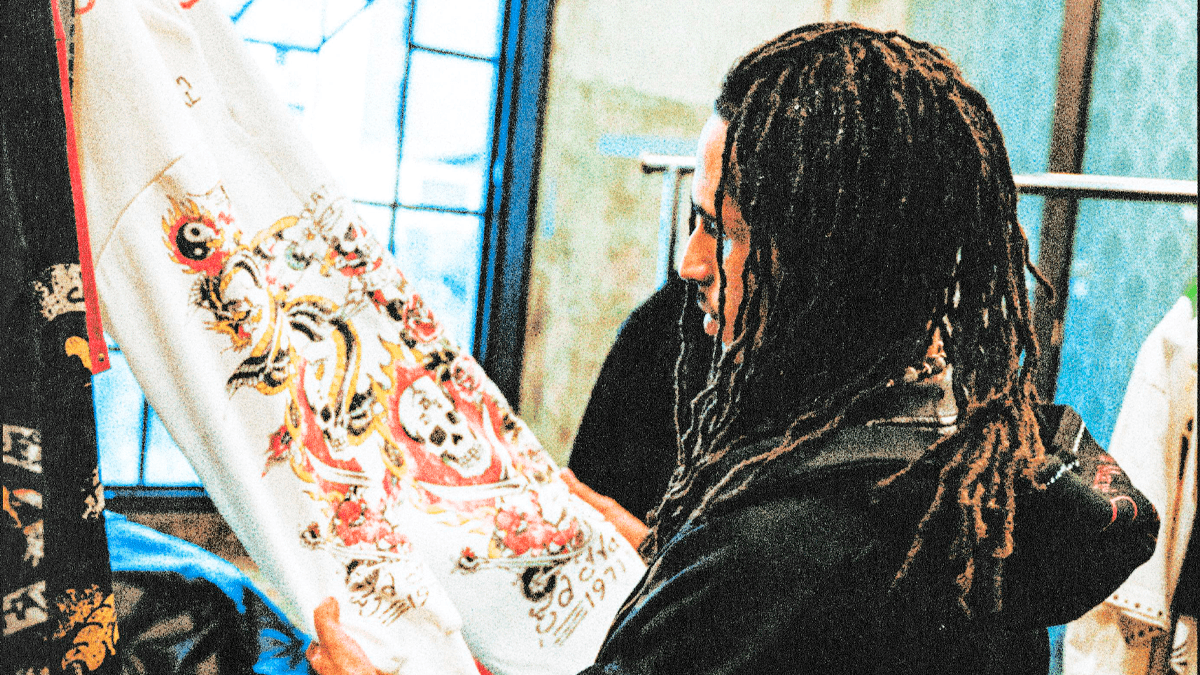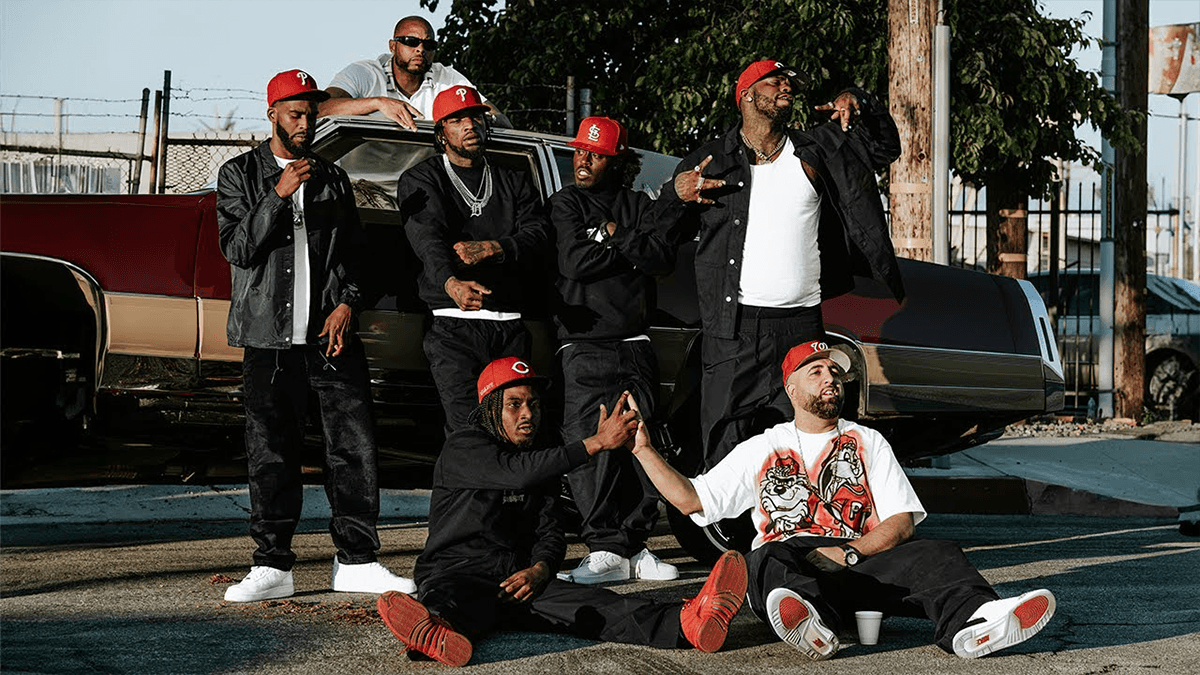2 Step Mafia Brazil: UK Garage and the culture of dubplate
Although it is a recent project, the idea of creating a record label is the result of a journey that started years ago when LZR had his first contact with the music market through the Label NoFriends, an experience that sparked in him the desire to one day have his own label. Since then, it has been years of building in the electronic scene, from the foundation of the Grau party to the consolidation of a sound identity linked to UK Garage and Bass Music.
With the maturation of the scene and the strengthening of spaces like Grau, 2 Step Mafia Brazil emerges as a separate project that, along with Teiu, is directly focused on music releases. The proposal is clear: to invest in physical media, in the culture of dubplate, and in limited runs as a form of resistance to the dominant streaming model, reclaiming a more direct, emotional, and authentic relationship with music.
2SMBR is more than just another project; it is a statement guided by artistic autonomy, cultural depth, and the construction of a solid scene, connected to its community and the history of the sound it carries.
We talked a bit about the idea behind the label, sonic resistance, and UK Garage in Brazil. Check it out below:
1. How did the idea of creating 2 STEP MAFIA BRAZIL come about? What motivated you to take this step now?
The idea of creating 2SMBR has been around for a few years. I have always wanted to have a record label because, in reality, my first entry point into the electronic music market was through a record label. In 2018, when I moved to São Paulo, some friends were setting up a label and invited me to be part of it. At the time, I was still learning everything: I didn't know how to DJ properly or produce. So, besides the technical aspect, all my first lessons about the electronic music market came from that experience. I was very lucky because it was a special label made by very talented friends.

Then came the pandemic, everyone went their separate ways, and after that period, in 2022, I created Grau with Su. Grau was born from the desire to create a space to play and listen to UK Garage because, despite several DJs already playing and producing that sound, there was still a resistance — both from promoters and the public — in accepting this style in the clubs. Playing Garage was always a risk, and Grau emerged precisely from the need to build a safe space where this sonority could grow and find its audience in São Paulo, especially within the culture of Bass Music.
During these three years with Grau, the desire to create a record label continued to exist. Initially, I thought of making it an arm of the party itself, but this year I felt it made more sense to separate the two: to keep the record label and the party as distinct projects.
With Grau moving along more smoothly, I began to miss being connected with something more directly linked to music — to the release of music itself. To be honest, I’ve been feeling a certain emptiness in meaning at parties, and 2 Step Mafia Brazil also arose from this desire to rescue a more pure connection with music.
I was already exchanging many ideas with Teiu about doing something together; he is one of the guys I know that understands the culture of UK Garage the most, in addition to having an artistic vision that I admire greatly. He helped me through all stages of creating the label, and now continues as our art director.
In the end, 2 Step was born from the combination of my first experience with the NoFriends label and the three years producing Grau in different formats. This year I felt ready to create something new — something that could exist beyond the nightlife environment.

2. Why UK Garage? What about this sound made you decide to focus on it within Brazil?
The main reason is that I love this sound.
Additionally, music from England and Brazilian music connect a lot, and this comes from a long history that has been built gradually. It started in the 90s with the boom of Drum and Bass and Jungle in Brazil. But I believe the stronger entry of English music in Brazil was through Grime.
And, if we look at history, Grime is an offshoot of UK Garage. In the early days of Grime, these two languages were so close that it was hard to separate one from the other. The interest in UK Garage in Brazil arose naturally after this Grime boom.
So, for me, focusing on UK Garage within Brazil is also about continuing this cultural exchange that already exists and deepening it even further.

3. What was the biggest challenge in setting up an independent label focused on physical media and limited runs?
The biggest difficulty is quite obvious: it is the simple fact of going directly against how the entire music market works today. The difficulties of 2 Step Mafia are the same as those faced by everyone who works with art, especially those who work with a style that is not so popular, so the market is naturally smaller. There is a lack of funding, there are difficulties in reaching the right people because of how social media works, and there is also the barrier of doing something that does not follow the digital flow of current music.
But, to be honest, despite all these challenges, today it seems a bit more possible than it has been. I felt that in recent years there has been a countercurrent, a growing demand for different ways to consume music. The culture of Dubplate has existed for decades; it is not a novelty in music, but it is something that has regained strength in recent years.
I myself am a big consumer of this type of release, and I see many friends who are too.
So, instead of focusing on the difficulties, I try to concentrate on the fact that there is now a more favorable environment — built by many people who have walked this path before and opened up space for projects like 2 Step Mafia Brazil to exist.

4. How do you view the UK Garage scene in Brazil today? And where can it go in the coming years?
This is a very personal perception, right? Each person may see it differently. But from what I have seen, I feel that the UK Garage scene in Brazil is growing more and more. There are more DJs playing, the sound is reaching places that didn’t previously have an opening for the style. Today we can see, for example, Mochakk playing UK Garage in his sets. I heard a lot of garage at this year's Gop Tun Festival, and Introspekt, who is a legend of this sound, is one of the headliners at the Mamba Negra festival.
In pop culture, there is also a rapprochement happening: big artists have already started flirting with this style. Interestingly, the first UK Garage track that I know of that played in Brazil was “Adoleta” by Kelly Key — and it was a hit. So, there is indeed the possibility of it growing even more, but after 20 years working with music, I've learned that you can't predict much how things will be. And, honestly, I don't think everything needs to explode or become pop to be relevant. For me, it's much more about enjoying the moment and building a solid scene that lasts for years.
So, I see that things are looking good for UK Garage in Brazil. It is not a popular genre, but it is present at almost all underground parties in São Paulo today. A lot of new people who are producing electronic music are also flirting with this sound.
Where is this going? I don’t know. But I hope the scene strengthens in a sustainable way.

5. What do you think is still missing to strengthen this sound in the country once and for all?
I think that the strengthening of a musical style happens naturally as more people start to become interested in and study it. For me, what truly makes UK Garage strengthen in Brazil is the growing knowledge of the culture behind it by those creating this sound and their ability to produce at a competitive level with the rest of the world.
What is really lacking is time. As I've said, it's a genre that is still growing here. And from this growth, people will emerge who, like me, Teiu, Suelen, Cesinha, Peroli, Antconstantino, Rassan, and many others, will delve deeper into the knowledge of the style. This, in itself, will consolidate the foundation and strengthen the scene.
If there are people making quality UK Garage in Brazil, that will naturally draw attention from outside the country as well. Funk made the whole world look at Brazil's musical production. Since then, it has become easier for us to connect with artists, labels, and festivals from the rest of the world.
For me, the seed has already been planted. Now it’s time to let it grow, give it time.

6. You talk a lot about valuing the culture of the dubplate. How does this approach influence the way you think about releases?
This is a very important question because opting for physical releases directly reflects the way I think about all my music projects.
The culture of dubplate is a direct form of resistance to the current music market, which is basically dominated by Spotify. The way we consume music today is in deep crisis — but this conversation is just beginning. Last year, an alarming report came out from Luminate, a company specializing in entertainment industry data, that shows the scope of this problem: today there are over 200 million songs available on streaming services, and 150 million of them have a maximum of 100 plays.
When we stop to think about it, this looks very much like the current situation of income distribution in the world, where 1% of the population holds an absurd share of global wealth. A similar thing happens on streaming platforms: according to the same report from Luminate, 1% of artists account for over 1 billion plays each.
And the biggest issue is to think that, in the end, those who really profit from this model are not even these top artists — it’s Spotify.
We already know the social consequences of the unequal distribution of wealth, and now more and more studies are showing the impact of this model within the music industry.
Therefore, choosing to release physical formats in limited editions is not about aesthetics or nostalgia — it is a choice that completely changes the relationship with music. When you are trapped within this current market model, with all this culture of numbers and social media, things end up feeling a bit dull and empty. There is constant pressure to perform, and that wears you out. I am always on a personal quest for a more direct and genuine relationship with music, and those who consume it.
I opted to release on CD to keep the project more accessible since the cost of production in vinyl is very high in Brazil. The CD ended up being a cheaper alternative and at the same time allowed me to have total control over all stages of production. For the most recent edition of our party with Speedtest, for example, we created a special Dubplate just for the occasion, and all this material was produced by me at home. So not only could I distribute my music directly to our audience, but I also controlled the production. And the most important thing is that it has been much more fun to do things this way.

7. Looking to the future, is there anyone you would like to collaborate with?
Because of the physical releases, I've started to think about the label from two angles: on one side, the musical releases; on the other, the product releases — always related to music, of course.
On the musical side, there are a lot of people here in Brazil I would like to collaborate with. Our next release, for example, is going to be a digital release. Although the label has this focus on physical media, I felt that releasing something digital now is also a way to project the national production of UK Garage to the world more easily. The idea of these digital releases is to work with Brazilian MCs. I think this has huge potential to expand the reach, not only within the scene here in Brazil but especially outside the country. Physical releases take time to plan and execute ideas, so I want to have a calendar of digital releases to fill those gaps and continue communicating with our scene. There are many MCs I would love to collaborate with; Sodomita would fit super well on a Garage beat. It would be awesome to do a collab with Laylah Arruda, an MC of reggae that I really like.
Now, thinking more about the product side, I already have some ideas for upcoming releases — I can’t say much yet because otherwise, people will steal my ideas (laughs). But since the beginning of the label, I have always thought it would be really cool if we could release a CD player for 2 Step Mafia. I still have no idea how to make that happen, but I know I'll have to execute this project in partnership with someone. I don’t know who in Brazil would be interested in jumping on this idea, but I will unlock it at the right time.

8. And if you could give a piece of advice to someone, what would you say?
Wow, this question is tough, right? But I think the most important thing I’ve ever heard in these 20 years working with music was a phrase that has never left my mind: “If you take care of the music, the music will take care of you.” To me, this has proven to be very true over time. So, if you are interested in working in this field — whether as a DJ, producer, with a record label, or in any other way — my biggest recommendation is to truly focus on the musical aspect above all else. Especially at the beginning, it's very easy to get lost in other concerns, but at the end of the day, musical excellence always speaks louder. The best DJs, producers, and labels end up standing out sooner or later.
Another essential thing is to keep the interest alive. Turn off Instagram for a bit, go read an interview, meet someone from your scene, exchange ideas in the real world. Go to your friend’s party, support that DJ who is starting, strengthen your local scene. This may seem cliché, but it has never ceased to be important — music is built on the foundation of community.
I also think it’s essential to have a good understanding of the market where you want to operate: study the needs, how everything works, and realize that there are alternatives beyond what seems most obvious. I never imagined that 2 Step Mafia would reach where it has. I’m not saying it has become something huge, but it has achieved much more than I imagined at the beginning. This made me rethink how we expect recognition in music. Sometimes changing that expectation is what keeps your mind healthy. Focus less on numbers and try to create something that is genuinely a reflection of yourself. Stop trying to be/do someone you admire. Inspiration is always welcome, but imitation is everywhere — and you just end up being another one.
Study the reference of your reference. Go after who inspired who, understand the history of your scene, dive deep. All of this not only strengthens your work but connects you truly with the culture you are wanting to be a part of. Having fun throughout this process is also very important. Earlier today, before answering this last question of the interview, I spoke with my partner Sixx4Sixx from Tijolo Records, and I want to share a quote from him here; “working with music has to be full of love, the thing is like a curse, even though it’s really hard, we can’t stop because we love this stuff too much.” That’s very true; working with music isn’t a walk in the park and is quite different from what most people expect, so whatever you do, do it with love, you know? I’ve been in this hustle for 20 years, and I wouldn’t change a thing; I’m very proud of my journey and think I’ve reaped good fruits from my choices. I’m surrounded by people I admire and am working on two projects that I love.
See others like this





